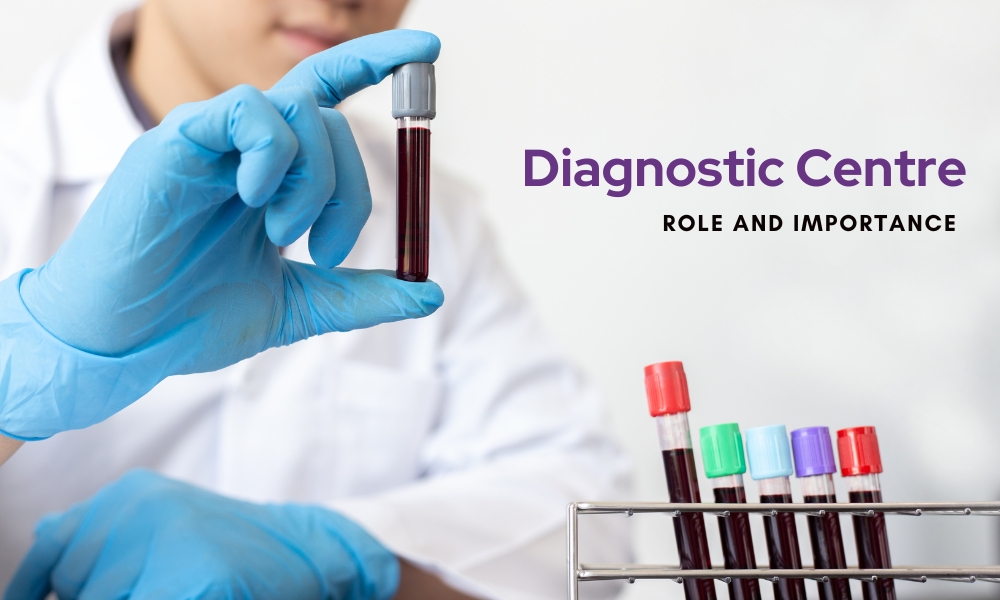In today’s world, where diseases and treatments are evolving powerfully, diagnostic centres play a crucial role. It would not be wrong to say that a diagnosis made only based on symptoms and without examinations or tests might be inaccurate. Thus, undergoing advanced examinations or imaging tests has become a compulsion.
Since early detection at the best diagnostic centre in India is the first step in tackling an existing or upcoming health complication, their importance cannot be overlooked. Thus, this article discusses the role and importance of diagnostic centres in detail.
Role of Diagnostic Centres
The role of the diagnostic centre is not limited to the initial diagnosis; instead, it extends way beyond that and can be categorized as follows:
- Diagnosis
Diagnostic centres help identify whether the patient suffers from a particular medical condition. The comprehensive examinations these centres offer allow doctors to understand the nature and stage of identified conditions, if any.
- Monitoring
Several diseases, especially chronic ones, require periodic monitoring after the initial diagnosis. Diagnostic centres perform routine checks to check whether the disease is under control, even during and after the treatment. The monitoring helps to analyze whether the situation has worsened or improved, allowing doctors to make necessary changes in their treatment plan.
- Screening
Screening is crucial in cases where medical conditions are likely to display no or minimum symptoms at the initial level. Screening can be done at an individual or community level to check whether certain diseases like COVID-19 are spreading or developing quietly. However, one thing to note is that screening done in a top pathology lab in India differs from diagnosis since it identifies potential patients/carriers of certain conditions.
- Prognosis
A prognosis can be termed an assumption. In the healthcare industry, prognosis means evaluating the possibilities of developing a specific condition or disease in the near future, ultimately suggesting necessary precautions to the patients.
Importance of Diagnostic Centres
- Offers Comprehensive Examinations
Diagnostic centres are known to offer a variety of examinations. It includes routine tests, imaging tests, and special tests a patient needs to undergo for accurate diagnosis of any medical condition. Moreover, these centres are well-equipped with the technology, facility, and equipment required to perform CT scans, MRIs, X-rays, ultrasounds, and blood tests.
The comprehensive examinations allow physicians and doctors to make informed and accurate decisions, ultimately helping them develop a custom and effective treatment plan.
- Convenience
Diagnostic centres, a part of modern-day healthcare, are known to provide much-appreciated convenience to patients. Patients can schedule appointments during the centre’s working hours for times that best suit them. Moreover, they do not need to visit the centre immediately for reports since several centres share updates on smartphones, allowing patients to view them first and then collect them later at their convenience.
- Early Detection
Early detection of a disease or condition significantly increases the chances of successful treatment, justifying the importance of diagnostic centres. Several life-threatening diseases, such as heart conditions, cancer, diabetes, and more, demand quick diagnosis. This is also one reason people should search for a “diagnostic centre near me” and visit there periodically to undergo essential examinations or tests.
The results of screening tests a patient undergoes at the diagnostic centre help medical professionals identify early symptoms of severe diseases (if any). Moreover, they get to understand the stage and severity of the condition, which is extremely beneficial in drafting an effective treatment plan to alleviate the symptoms.
- Collaborative Care
There are different types of diagnostic centres. Some are standalone, and most work in collaboration with healthcare facilities or providers. They might be associated with specialists, physicians, and hospitals; however, every patient is welcome. The collaborative approach diagnostic centres choose benefits patients by enabling them to quickly get effective results and appropriate diagnoses.
Conclusion
The article highlights the role and importance of diagnostic centres in modern healthcare. The centres significantly impact significant decisions, including the treatment of any disease. Thus, the patient must visit a diagnostic centre or book home sample collection when prescribed or in case of any self-identified red flags.






Comments